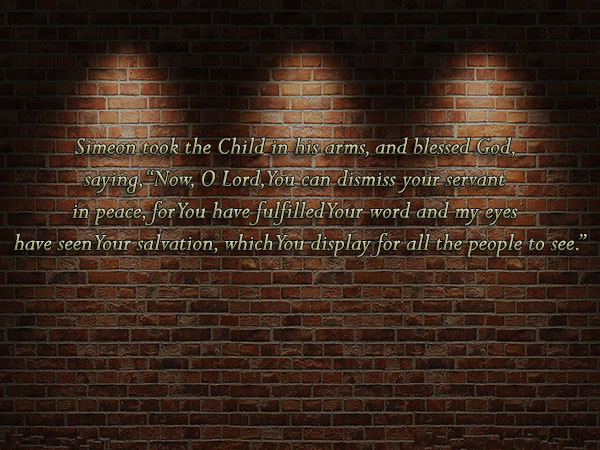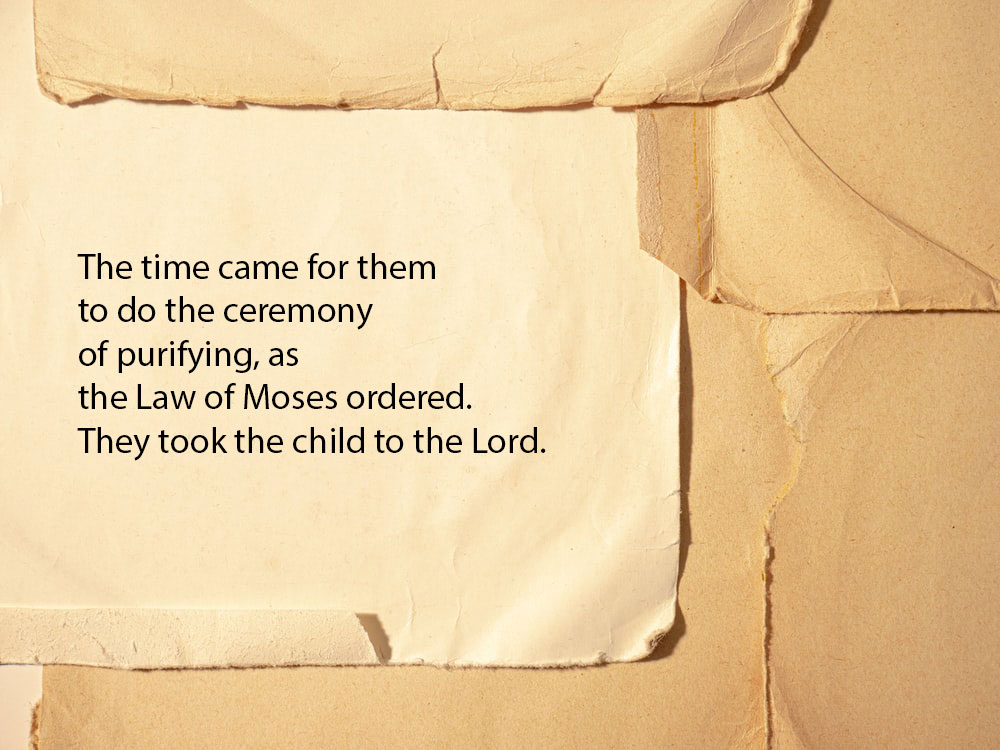Lk 4:16-30
When Jesus came to Nazareth where he had been brought up, he entered the synagogue on the Sabbath as he usually did. He stood up to read and they handed him the book of the prophet Isaiah.
Jesus then unrolled the scroll and found the place where it is written: “The Spirit of the Lord is upon me. He has anointed me to bring good news to the poor, to proclaim liberty to captives and new sight to the blind; to free the oppressed and to announce the Lord’s year of mercy.”
Jesus then rolled up the scroll, gave it to the attendant and sat down, while the eyes of all in the synagogue were fixed on him. Then he said to them, “Today these prophetic words come true even as you listen.”
All agreed with him and were lost in wonder, while he spoke of the grace of God. Nevertheless they asked, “Who is this but Joseph’s son?” So he said, “Doubtless you will quote me the saying: Doctor, heal yourself! Do here in your town what they say you did in Capernaum.”
Jesus added, “No prophet is honored in his own country. Truly, I say to you, there were many widows in Israel in the days of Elijah, when the heavens withheld rain for three years and six months and a great famine came over the whole land. Yet Elijah was not sent to any of them, but to a widow of Zarephath, in the country of Sidon. There were also many lepers in Israel in the time of Elisha, the prophet, and no one was healed except Naaman, the Syrian.”
On hearing these words, the whole assembly became indignant. They rose up and brought him out of the town, to the edge of the hill on which Nazareth is built, intending to throw him down the cliff. But he passed through their midst and went his way.
REFLECTION
What is most shocking to the Nazarenes is not that Jesus had already lavished his miracles on other cities of Israel; it is rather that, appealing to the example of Elijah and Elisha, those great prophets of the past, Jesus asserts his right to perform miracles also for the benefit of pagans: a prophet does not restrict his favors to his homeland. To the Jews, who were aware of being the Chosen People, it was unthinkable and scandalous that the Messiah, the Messenger of God to Israel, could be interested in pagans. And so, his declaration seems blasphemous to them, deserving death by stoning. Jesus will often meet with this attitude in the course of his ministry.
If God has chosen us to be his sons and daughters through baptism and Christian education, it is not because he is not interested in the pagans; it is because he wants to use us in attracting the pagans to the true God through our good example. And if God, without out intermediary, gives us to some pagans more graces than he gives to us, then we should not be scandalized by his kindness. We should rather give glory to such a kind God “who wants everybody to be saved” (1 Tim 2:4).
CLARETIAN COMMUNICATIONS FOUNDATION, INC.
8 Mayumi Street, U.P. Village, Diliman, 1101 Quezon City, Philippines
Tel.: (02) 921-3984 • 922-00-11 • 921-28-59 Fax: (02) 921-6205, 927-7429
Bookstore: (02) 924-6835
Email: ccfi@claretianpublications.com / cci@claret.org
Website: www.claretianpublications.com







